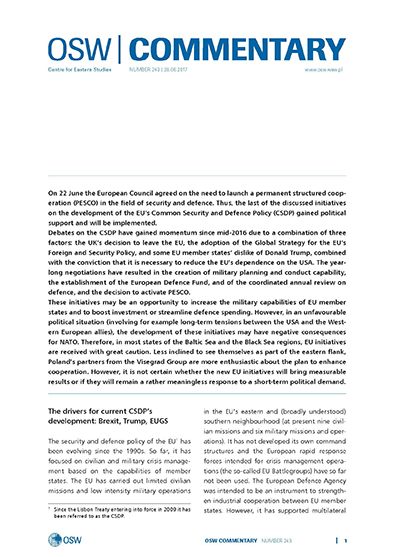Russian sanctions against Moldova. Minor effects, major potential
Russian sanctions against Moldova. Minor effects, major potential
Author(s): Kamil Całus
Subject(s): Economic policy, International relations/trade, Developing nations, Geopolitics
Published by: OSW Ośrodek Studiów Wschodnich im. Marka Karpia
Keywords: Russia; sanctions; Moldova
Summary/Abstract: Russia has been Moldova’s main trade partner and Russian capital has accounted for a large part of its foreign investments, dominating in the energy and the banking sectors. Moreover, Russia has been a key job market for Moldovan expatriate workers. In the economic sphere, this is making Moldova unilaterally dependent on Russia. Moscow has been attempting to exploit this situation to put pressure on the authorities in Chișinău for quite some time.In recent months Russia has increasingly used instruments for exerting economic pressure on Moldova, as a means of responding to the current authorities’ pro-Western policy. A key element of this policy was Moldova’s signing on 27 June 2014 of the Association Agreement with the EU (which came into force on 1 September 2014). Over the last year, Russia has implemented a number of import restrictions on Moldovan goods. The aim of the Russian actions is to fuel social disappointment, and ultimately – to prevent the pro-European coalition currently in power from winning the parliamentary elections scheduled for 30 November 2014. Another aim might be to convince the Moldovan authorities to suspend the implementation of the Association Agreement – a plan openly put forward by Vladimir Putin during the CIS summit in Minsk on 10 October 2014.
Series: OSW Commentary
- Page Count: 8
- Publication Year: 2014
- Language: English
- Content File-PDF

